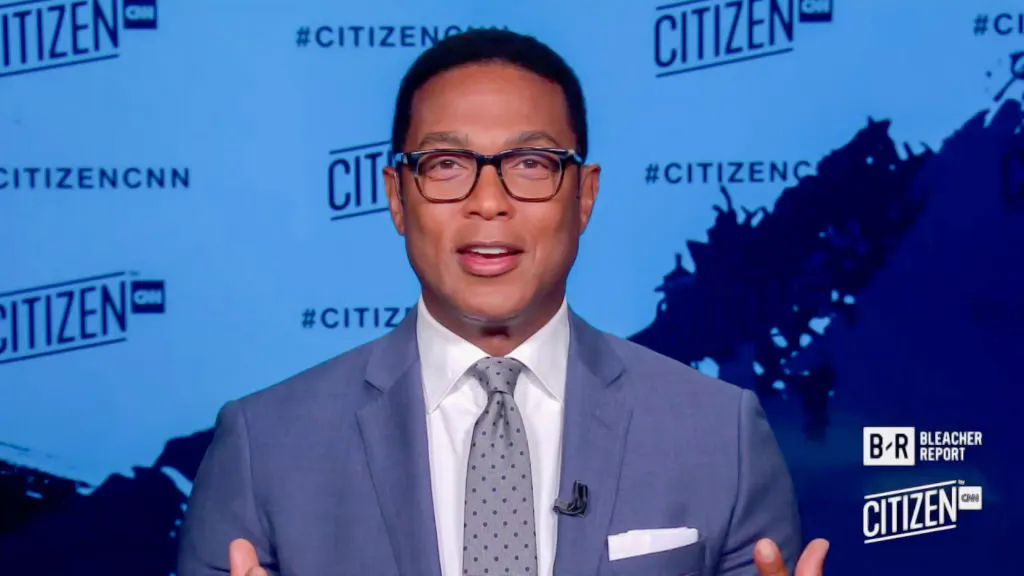A New York Times columnist publicly rebuffed Don Lemon — and the broader legacy media — when the CNN host denied that public schools teach the controversial, collectivist dogma known as Critical Race Theory (CRT).
Ross Douthat, the rare Times columnist whose political views fall on the center-Right, pushed back against the common argument that concerned parents have needlessly harassed public school officials because CRT is not being taught in public schools.
Douthat began by rebutting the increasingly common assertion that those against CRT oppose teaching negative aspects of U.S. history, such as slavery and Jim Crow. What’s “driving controversy in schools right now is not teaching that racism exists and has consequences today,” he said. “It’s a much more specific sort of theory” that categorizes social norms like meritocracy as “toxic whiteness.”
The American people oppose “constructing a stronger sense of racial identity in order to make people feel a sense of their own privilege and guilt,” Douthat said.
Lemon responded that CRT is an academic theory pioneered by legal scholar Derrick Bell and is restricted to seminars at law schools.
“We should say that Critical Race Theory is not being taught. It’s not part of the curriculum for elementary or grade school students,” he said. “It’s something that is taught in law schools. Just so we know.”
“No … that’s not exactly right,” Douthat corrected his host. “Critical Race Theory is an incredibly influential set of ideas that has solid influence in education, schools, and elsewhere.”
He clarified on Thursday that “it’s not the foundational texts of Critical Race Theory that are being taught in primary schools, but curricula are being developed that do reflect ideas that come out of Critical Race Theory in some attenuated sense.”
Critical Race Theory grew out of Critical Legal Theory in the 1980s. It teaches that disparate outcomes between groups — such as lower incomes or higher incarceration rates — are caused by “structural racism” embedded in laws, including the U.S. Constitution. To remedy this, U.S. laws must be revised to redistribute wealth between racial cohorts and create “equity.”
While some public school teachers specifically use the work of CRT legal scholars in the classroom, Douthat said that best-selling authors have taken CRT’s doctrines far beyond the Ivory Tower.
The core ideology of Critical Race Theory has spread beyond the late Derrick Bell or Kimberlé Crenshaw and is “passing through figures like Robin DiAngelo and Ibram [X.] Kendi, these prominent public intellectuals, activist-authors,” he said. CRT’s worldview is “being popularized. It’s moving out of the academy.”
DiAngelo’s book White Fragility has remained on The New York Times’ bestseller list for three years, although her poor-selling follow-up, Nice Racism, has already fallen off the list. Kendi’s How to be an Antiracist also saw brisk sales in 2020, while The New York Times’ 1619 Project influenced curriculum standards in thousands of public school districts.
Douthat’s clarification is vital for those seeking to engage in the contentious discussion of CRT’s use in public schools. As parents have become increasingly concerned, and assertive, about lessons that divide students based on race or other immutable categories, or impute “privilege” or “oppressor” status to some students based on ethnicity, one of CRT defenders most common tactics is to deny that the theory is being taught in schools. The notion that CRT influences lesson plans in K-12 schools is a right-wing talking point, they argue.
But the nation’s two largest teachers unions, the National Education Association (NEA) and the American Federation of Teachers (AFT), have both promised to defend teachers from parental outrage over the inclusion of CRT-themed ideology in the public school system.
“In language, terms evolve, and quickly,” wrote English professor John McWhorter, who has said that as a black man he finds CRT patronizing. “To insist that ‘CRT’ must properly refer only to the contents of obscure law review articles from decades ago is a debate team stunt, not serious engagement with a dynamic and distressing reality.”
The fact that teachers unions and the legacy media have quibbled over definitions rather than listening to parents’ and viewers’ objections to a polarizing ideology continues to engender widespread doubt in both institutions.
“You can see where the backlash would come from, I think,” Douthat told Lemon.

.png)
.png)

